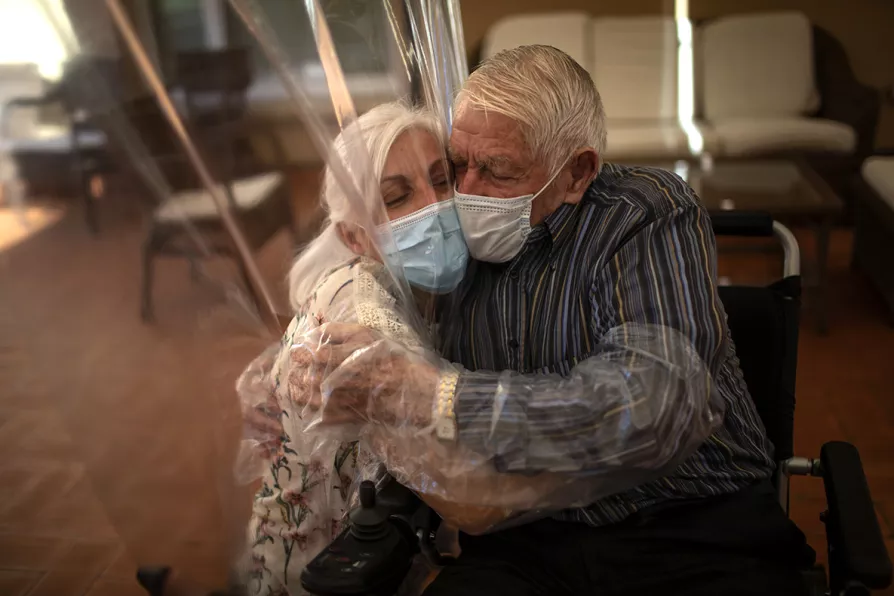UN health body drafts new treaty to deal with future pandemic

 Dolores Reyes Fernández (61) hugs her father, José Reyes Lozano (87) for the first time in nearly four months as visits resume at the nursing home in Barcelona, Spain, June 22, 2020
Dolores Reyes Fernández (61) hugs her father, José Reyes Lozano (87) for the first time in nearly four months as visits resume at the nursing home in Barcelona, Spain, June 22, 2020
FIVE years after Covid-19 triggered national lockdowns, economic uncertainty and killed millions, World Health Organisation (WHO) member countries agreed today on a draft “pandemic treaty.”
The treaty will provide guidelines for how the international community might confront the next global health crisis.
After what many regard as a disastrous response to the coronavirus crisis, countries tasked the WHO in 2021 with overseeing the preparation of a pandemic treaty. Early Wednesday, negotiations concluded an agreement that is expected to be adopted at the United Nations health agency’s annual meeting in Geneva next month.
Similar stories














